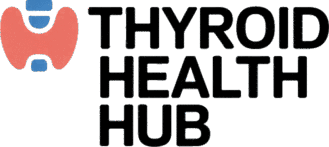Thyroid Medications: Patient Experiences Shared

Patients often find themselves overwhelmed when switching thyroid medications. Understanding the nuances of this process can empower you to engage better with your healthcare provider and manage your health with confidence.
What You Will Learn
- Switching thyroid medications may be necessary due to side effects, ineffectiveness, or personal preference.
- Levothyroxine is commonly used for hypothyroidism, but individual responses can vary significantly.
- Liothyronine works more quickly than levothyroxine and may offer quicker symptom relief for some patients.
- Monitoring TSH levels is crucial during medication switches, as fluctuations can indicate how well your new treatment is working.
- Keeping a symptom diary can help you and your healthcare provider tailor your treatment effectively.
- Open communication with your healthcare provider is essential when experiencing changes in symptoms or side effects.
- Lifestyle modifications, such as diet and exercise, can enhance thyroid health and support medication effectiveness.
- Engaging with support systems, whether through local groups or online forums, can provide valuable emotional support during transitions.
Understanding the Dynamics of Thyroid Medication Switching
This visual highlights the key aspects and considerations involved when patients switch thyroid medications, comparing different types and their impacts.
Levothyroxine (T4)
- • Mimics natural T4 hormone
- • Regulates metabolism, energy
- • Common: Synthroid, Levoxyl
- • May cause anxiety, weight changes
Liothyronine (T3)
- • Active form of thyroid hormone
- • Faster onset of action
- • Marketed as Cytomel
- • Higher risk of heart palpitations
Natural Desiccated Thyroid (NDT)
- • Contains both T3 and T4
- • Derived from pig thyroid glands
- • Appealing for some patients
- • Less consistent in potency
Key Considerations for Switching
- • TSH level fluctuations
- • Dose adjustments needed
- • Regular function tests (TSH, Free T4)
- • Systematic symptom monitoring
Understanding the Impact of Switching Thyroid Medications on Symptoms
Switching thyroid medications can feel like navigating a complex maze. For many patients, it raises questions about how these changes might impact their symptoms and overall health. At Thyroid Health Hub, we aim to clarify what medication switching entails and how it affects those living with thyroid conditions, particularly hypothyroidism.
When discussing medication options, it’s essential to understand what switching thyroid medications means for you. Each medication has a different formulation and absorption rate, which can influence how your body responds. Let's dive deeper into this dynamic process and explore some of the most common medications used in thyroid treatment.
The Dynamics of Thyroid Medication Switching
What Does Switching Thyroid Medications Mean for Patients?
Switching thyroid medications typically involves changing from one type of thyroid hormone replacement to another. This might occur due to various factors, such as side effects, ineffectiveness of the current medication, or personal preference. It's crucial to communicate openly with your healthcare provider about any challenges you're facing with your current treatment.
When you switch medications, your body might react differently based on how it metabolizes the new drug. Some patients report improvements, while others may not feel the anticipated benefits right away. Have you ever wondered how this process feels? Let's look at how medications like levothyroxine fit into this picture.
The Role of Levothyroxine in Thyroid Treatment
Levothyroxine is often the go-to medication for hypothyroidism due to its effectiveness in mimicking the natural thyroid hormone, thyroxine (T4). It helps in regulating metabolism and energy levels, which is vital for anyone managing thyroid issues. However, not every patient responds the same way.
- Common formulations include Synthroid, Levoxyl, and Euthyrox.
- It works primarily by increasing T4 levels in the bloodstream.
- Many patients find it a reliable option, but some may experience side effects like anxiety or weight changes.
Understanding how levothyroxine works allows patients to discuss their experiences intelligently with their healthcare providers. It’s important to consider whether levothyroxine is the best fit for your specific needs.
Exploring Liothyronine: Differences from Levothyroxine
Liothyronine, often marketed as Cytomel, is another thyroid hormone used to treat hypothyroidism. Unlike levothyroxine, liothyronine contains the active form of thyroid hormone (T3) and works more quickly. This can be beneficial for some patients who don't feel improvements with T4 alone.
- Liothyronine has a faster onset of action.
- Its effects can be more pronounced, leading to quicker symptom relief.
- However, it may also come with a higher risk of side effects, including heart palpitations.
Patients considering this switch should weigh the pros and cons, as well as discuss it thoroughly with their healthcare team to determine the best path forward.
Patient Experiences: Real Stories from Those Who Made the Switch
Common Symptoms Reported After Switching Thyroid Medications
Every patient's journey with thyroid medication is unique, and many report a variety of symptoms after switching. Some common experiences include fluctuations in energy levels, mood changes, and even weight shifts. But what do these changes mean for you?
- Increased energy levels or fatigue.
- Anxiety or irritability.
- Changes in weight—either gain or loss.
Understanding these symptoms can empower individuals to navigate their treatment effectively and seek assistance when necessary.
Comparing Synthetic Levothyroxine, Synthroid, and Natural Desiccated Thyroid
As patients explore their options, they often compare different types of thyroid medications. Synthetic levothyroxine, like Synthroid, is commonly prescribed, but some patients opt for natural desiccated thyroid (NDT) derived from pig thyroid glands. Each option brings its own set of benefits and challenges.
- Synthetic levothyroxine is standardized and widely studied.
- Natural desiccated thyroid contains both T3 and T4, which can be appealing to some.
- Patients may find NDT more effective for managing symptoms, but it can be less consistent in potency.
This comparison highlights the importance of personal preferences and individual responses when choosing a thyroid medication. Communication with healthcare providers can help clarify which option may be the best fit.
Impact of Medication Side Effects on Patient Experiences
Medication side effects can significantly shape the experiences of thyroid patients. Issues such as insomnia, hair loss, or gastrointestinal discomfort can lead to frustration and uncertainty during treatment. It's important to monitor these effects and discuss them openly.
- Some patients may experience heightened sensitivity to changes.
- Regular follow-up appointments can help manage side effects effectively.
- Keeping a symptom diary can provide valuable insights for you and your healthcare provider.
By staying informed and proactive, you can navigate these challenges more effectively. Understanding your symptoms and their potential causes can lead to adjustments that better align with your health goals.
Clinical Insights: Research on Medication Switching
Do Changes in TSH Levels Occur with Medication Switching?
When switching medications, many patients wonder how it will affect their thyroid-stimulating hormone (TSH) levels. Research indicates that TSH levels can fluctuate during this transition, making regular monitoring essential. This is a crucial aspect of managing hypothyroidism effectively.
TSH levels are a key indicator of how well your thyroid medication is working. Changes here can guide your healthcare team in making necessary adjustments. So, let’s delve into the implications of these changes!
Understanding Dose Adjustments During Medication Changes
Every patient's body responds differently to thyroid medications, which means that dose adjustments may be necessary during changes. Whether you're moving from levothyroxine to liothyronine or trying a different brand, your doctor will likely monitor your dosage closely. This helps ensure you receive the correct amount needed for optimal thyroid function.
- Initial doses may be adjusted based on symptoms and lab results.
- Continuous monitoring can provide insights into how well the new medication is working.
- Adjustments may take time as your body acclimates to the new medication.
Staying engaged in this process can help you feel more empowered in managing your health journey!
The Importance of Thyroid Function Tests in Monitoring Treatment
Thyroid function tests play a pivotal role in monitoring the effectiveness of your medication. Regular testing can help identify whether the current medication and dosage are appropriate. At Thyroid Health Hub, we emphasize the importance of these tests to ensure you’re on the right track.

Typically, TSH, Free T4, and sometimes Free T3 levels are measured to gauge how well the treatment is working. Being proactive in requesting these tests can provide valuable information to guide your treatment decisions.
Frequently Asked Questions (FAQs)
Q: Why might someone need to switch thyroid medications?
A: Patients might switch due to side effects from their current medication, its ineffectiveness in managing symptoms, or personal preference for a different type of thyroid hormone replacement.
Q: What are the main differences between Levothyroxine and Liothyronine?
A: Levothyroxine (T4) mimics the natural T4 hormone and is a standard treatment for hypothyroidism. Liothyronine (T3) is the active form of thyroid hormone, has a faster onset of action, and may provide quicker symptom relief but can carry a higher risk of side effects like heart palpitations.
Q: How does switching medication affect TSH levels?
A: TSH levels can fluctuate during a medication switch due to the body adjusting to the new drug's formulation and absorption rate. Regular monitoring of TSH and other thyroid hormone levels is crucial to ensure proper dosage adjustments.
Q: What role do thyroid function tests play during a medication switch?
A: Thyroid function tests (TSH, Free T4, and sometimes Free T3) are vital for monitoring the effectiveness of the new medication. They help healthcare providers determine if the current dosage is appropriate and guide any necessary adjustments.
Q: Is it important to communicate with my healthcare provider when experiencing symptoms after a switch?
A: Absolutely. Open communication with your healthcare provider is essential. Any significant changes in symptoms or new side effects should be reported promptly to ensure timely adjustments and optimal care.
Guidelines for Managing Symptoms When Switching Medications
Importance of Systematic Monitoring of Thyroid Symptoms
Keeping track of your symptoms is key when switching thyroid medications. Systematic monitoring can help both you and your healthcare provider understand how the transition is affecting your health. This proactive approach leads to more tailored treatment and better outcomes.
- Maintain a daily log of your symptoms and any changes.
- Note any lifestyle factors that may contribute to your symptoms.
- Share this information during appointments to facilitate discussions.
By being diligent in tracking your symptoms, you take an active role in your treatment, which can make a meaningful difference.
Recommendations for Patients: When to Consult Healthcare Providers
It's essential to know when to reach out to your healthcare provider during medication transitions. If you experience significant changes in symptoms or side effects, don’t hesitate to seek advice. Your health is your priority!
- Contact your provider if symptoms worsen or new ones arise.
- Schedule regular follow-ups to review your progress.
- Ask questions if you're unsure about the changes you’re experiencing.
Taking prompt action can prevent many complications and ensure you receive the best possible care.
Symptom Management Strategies for Optimizing Thyroid Health
Successfully managing symptoms during medication changes often involves lifestyle modifications. Simple strategies can enhance your thyroid health and improve your overall quality of life. Let’s explore some effective options!
- Maintain a balanced diet rich in iodine and selenium.
- Incorporate regular exercise to boost energy and mood.
- Practice stress-reduction techniques, such as yoga or meditation.
These strategies not only support your thyroid health but can also contribute to better emotional well-being during transitions.
Addressing Emotional and Psychological Effects of Medication Changes
How Patients Feel About Switching: Emotional Considerations
Switching thyroid medications can evoke a range of emotions, from hope to anxiety. Understanding these feelings is vital to your overall health journey. Acknowledging emotional responses can help you navigate through the complexities of treatment.
Many patients find it comforting to connect with others who have shared similar experiences. This support can alleviate feelings of isolation and uncertainty.
Support Systems and Resources for Patients Adjusting to New Medications
Having a robust support system is invaluable when managing medication changes. Whether it's family, friends, or online communities, sharing your experiences can foster a sense of belonging. Don't hesitate to reach out to those around you for support.
- Look for local support groups focused on thyroid health.
- Connect with online forums where other patients share their journeys.
- Consider discussing your feelings with a therapist or counselor.
These resources can provide encouragement and practical advice as you adjust to your new medication.
Building a Community: The Role of Online Support Groups
Online support groups play a significant role in fostering a sense of community among patients. These platforms offer a safe space for sharing stories, questions, and advice about managing thyroid health. At Thyroid Health Hub, we believe in the power of community!

Engaging with others who understand your journey can provide insights you may not have considered. Plus, it creates opportunities for support and encouragement throughout your treatment.
Pro Tip
When considering a switch in your thyroid medication, it's beneficial to keep a detailed symptom diary. This diary should include notes on your energy levels, mood, and any side effects you experience. By documenting these changes, you can provide your healthcare provider with valuable insights, enabling them to tailor your treatment more effectively.
Summarizing Patient Experiences and Clinical Guidance on Thyroid Medication Switching
As we dive deeper into the complex world of thyroid medication switching, it's crucial to highlight the significance of personalized approaches in treatment. Every patient’s journey is unique, and understanding how to tailor thyroid treatment to individual needs can make all the difference in managing symptoms effectively.
At Thyroid Health Hub, we believe that a customized approach can empower you to take control of your health. By considering factors like age, lifestyle, and specific symptoms, we can help guide you towards the most effective treatment options. So, how can we tailor your thyroid treatment?
The Need for Personalized Approaches in Thyroid Treatment
How to Tailor Thyroid Treatment to Individual Needs
- Assessing specific symptoms: Every individual may experience different symptoms of hypothyroidism.
- Considering personal and family medical history: This context can influence treatment effectiveness.
- Evaluating how the body responds to different medications: Some may respond better to synthetic options, while others do better on natural desiccated thyroid.
By focusing on these aspects, you can work closely with your healthcare provider to develop a treatment plan that suits you best. Remember, it's all about finding what works for you!
The Importance of Open Communication with Healthcare Providers
Effective communication with your healthcare provider is key to successful treatment. Don’t hesitate to discuss any concerns or symptoms you're experiencing. This ongoing dialogue helps ensure that any necessary adjustments can be made timely. Regular check-ins can lead to better management of your thyroid health.
Moreover, being proactive in these discussions can foster a stronger patient-provider relationship, which ultimately benefits your health journey. Have you thought about what questions you may want to ask during your next visit?
Engaging with Thyroid Specialists for Optimal Care
Engaging with specialists, such as endocrinologists, can provide you with expert insights tailored to your thyroid health. These professionals are well-versed in the latest treatments and can offer personalized recommendations based on your symptoms and test results. Finding the right specialist can be a game changer in your treatment process!
At Thyroid Health Hub, we encourage you to seek out specialists who align with your treatment goals and values. Their expertise can be invaluable in navigating the complexities of medication switching.
Encouraging Active Participation in Managing Thyroid Health
As a patient, taking an active role in managing your thyroid health can lead to better outcomes. This means not only understanding your condition but also using tools and strategies to stay informed and engaged.
Tools and Apps for Tracking Thyroid Symptoms Effectively
- Symptom tracking apps: These can help you log daily symptoms and medication effects.
- Health journals: Keeping a physical record can help you see patterns over time.
- Online platforms: Engaging with communities or forums can provide additional support and resources.
Using these tools, you can gain insights into your health and share relevant data with your healthcare provider. Have you tried any of these methods?
Empowering Patients: Sharing Your Story for Better Outcomes
Your personal experiences can be a powerful resource—not just for you, but for others facing similar challenges. Sharing your story may help illuminate others' paths and inspire collective learning. Every journey is unique, and your insights could spark change!
Consider joining support groups or forums where you can share your experiences and learn from others. This community engagement can boost your confidence and provide valuable strategies for managing your health.
Understanding Dietary Considerations and Lifestyle Changes for Thyroid Health
Finally, let’s touch on the importance of dietary and lifestyle changes. Simple adjustments can significantly impact thyroid health, enhancing the effectiveness of your medication. Here are some key considerations:
- Incorporate iodine-rich foods, such as seafood and dairy, into your diet.
- Focus on a balanced diet rich in fruits, vegetables, and whole grains.
- Consider supplements only under the guidance of a healthcare provider.
These changes can provide a supportive foundation for your treatment plan. Remember, taking a holistic approach to your thyroid health will empower you to manage your condition more effectively.
Recap of Key Points
Here is a quick recap of the important points discussed in the article:
- Switching thyroid medications may be necessary due to side effects, ineffectiveness, or personal preference.
- Levothyroxine is a common medication for hypothyroidism, primarily increasing T4 levels in the bloodstream.
- Liothyronine, or Cytomel, works more quickly and contains T3, but may have a higher risk of side effects.
- Monitoring symptoms and TSH levels is essential when switching medications for effective management.
- Open communication with healthcare providers is crucial for tailoring treatment to individual needs.
- Lifestyle changes, such as diet and exercise, can significantly support thyroid health during medication transitions.









